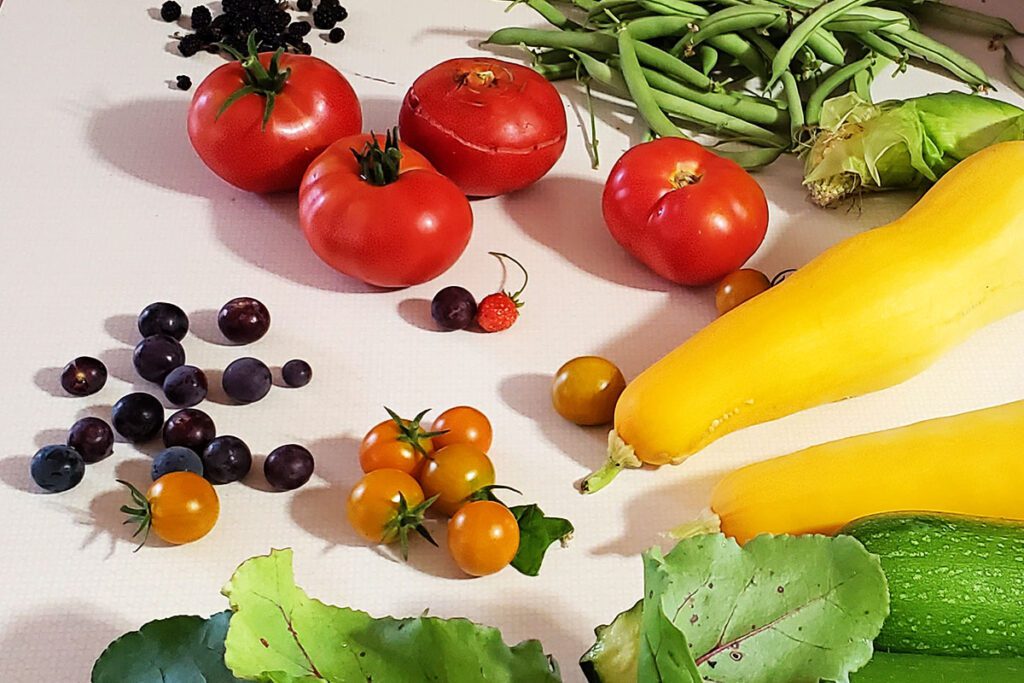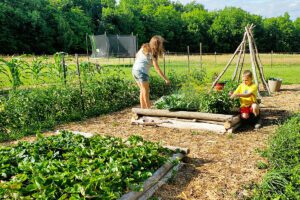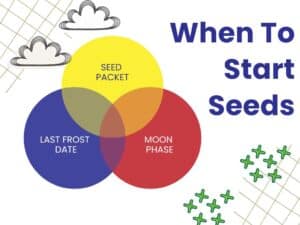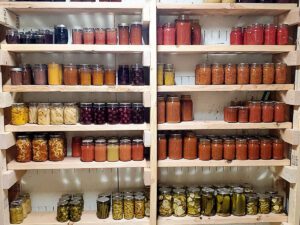When you’re working toward achieving big dreams, it is so tempting to wish you were starting at the end. You know, that place where the dream is fully realized and all the pieces are finished? Unfortunately, the end goal is not the place where most dreams and projects begin. The key to realizing those goals is breaking them down into smaller achievable steps, leading to the stage you dream of being at.

This brings me to a confession moment. I have a bad habit of biting off more than I can chew when I’m excited about a new project. I want to do ALL the things, right now! Even if I’m not sure exactly what I’m getting myself into. The trouble is, tackling too much all at once leads to stress, overwhelm, and often disappointment. Which is why I’m here to tell you that starting small is actually a good thing – and it’s something I’m working on remembering too.
Starting Small Gives You The Opportunity to Learn As You Grow
Tackling one step at a time comes with many benefits in the long run. And please know, as I’m writing this post, these points are a good reminder for me, too!
Small Projects Equal a Smaller Initial Investment
Let’s face it, projects cost money. Try as I might, I can never seem to stretch our project budget as far as I wish it would go. Starting small, and adding projects one at a time allows for a smaller investment at the beginning. You won’t need as many materials to begin, and tools can be added over time. Try to pick the most important pieces first, and invest in those, knowing you can add on and expand later.
When we bought our first goats, I was advised to buy the best stock we could afford and work up from there. While that was the advice given for breeding stock, it can be applied to most projects (gardening, livestock, food preservation) around a farm or homestead. Pick out a project, scale it to a level you can afford for now, and leave yourself room to improve or expand in the future if you choose.
You Get the Chance to Practice New Skills
Experience is the best teacher, and starting small gives you the chance to practice new skills. When you are first starting out, tasks will take you longer than they would for someone who has had years of practice. No matter how much research you do, learning about something and actually doing it are different. To be clear, I’m NOT saying to skip the research. It’s important to understand what you’re committing to. However, there is a big difference between deciding to raise 5 tomato plants versus 20-40. The skills you learn at a small scale can be applied later on if and when you decide to expand.
Your New Skills Build on Each Other
Many farming and homesteading skills build on each other. For example, once you’ve learned to start a tomato plant from seed, you’ll use those same skills to start other types of vegetables. The same goes for food preservation, raising livestock, and building DIY farm projects. My mom taught me the basics of canning and freezing when I was a teenager. As an adult, I’ve been able to build on those skills so cheesemaking and sugaring were not as difficult to learn. After you have learned some basic skills in one area, it is relatively easy to expand them to different species, varieties, and products.
You’ll Be Less Likely to Burn Out
I would imagine all of us have faced burnout at some point or another. When you reach that point where you’ve committed too much and don’t have the energy left to take care of any of it. The good news is that by starting small, you’ll have an easier time avoiding that feeling. You’ll have the chance to learn as you grow, and the time and energy to dedicate to a new project.
Your Dreams and Goals Have Time to Evolve
Dreams and goals evolve with time and progress. We saw this over and over on our Wyoming homestead, and are seeing it again on our New York farm. Starting with an end goal is important. We need clear goals to give direction to our projects. However, allowing our initial goals to develop over time is just as important.
You may start a new project, then find out it isn’t as enjoyable or profitable as you’d hoped. There’s a chance you could find new information or a new resource that completely changes the way you tackle a project. Over time, you may also find that your interests or passions change. All of those things are okay!
If you’ve started small, and grow as your interest, time, and resources allow you will eventually reach your goals. They just might look a little different than they did in the beginning.
At the end of the day, starting small with your farming and homesteading dreams is a good thing. By taking this approach, you can grow as your budget allows, give yourself the chance to learn new skills and gradually scale them up without getting overwhelmed, and allow your dreams to mature naturally.
Stay Up to Date
Sign up to receive our emails!
Thank you!
You have successfully joined our subscriber list.
- Yes, You Should Plant a Vegetable Garden! Here’s Why
 Planting a vegetable garden is an annual tradition for our family. When I can’t grow a garden, I truly miss it. That may not make much sense; after all my… Read more: Yes, You Should Plant a Vegetable Garden! Here’s Why
Planting a vegetable garden is an annual tradition for our family. When I can’t grow a garden, I truly miss it. That may not make much sense; after all my… Read more: Yes, You Should Plant a Vegetable Garden! Here’s Why - Don’t Know When To Start Seeds? Use A Planting Calendar!
 As the days get longer, and spring fever sets in, I can’t wait to get my hands in the dirt! It’s still way too early to start gardening outside, but… Read more: Don’t Know When To Start Seeds? Use A Planting Calendar!
As the days get longer, and spring fever sets in, I can’t wait to get my hands in the dirt! It’s still way too early to start gardening outside, but… Read more: Don’t Know When To Start Seeds? Use A Planting Calendar! - Planting A Canning Garden
 Let’s talk about vegetable gardens. They come in all shapes and sizes and can be grown in everything from patio containers to large in-ground beds. However, the garden I want… Read more: Planting A Canning Garden
Let’s talk about vegetable gardens. They come in all shapes and sizes and can be grown in everything from patio containers to large in-ground beds. However, the garden I want… Read more: Planting A Canning Garden
